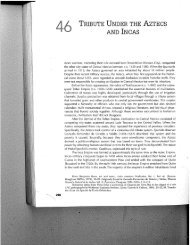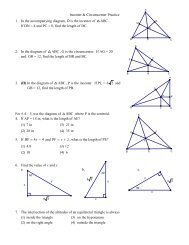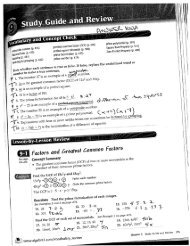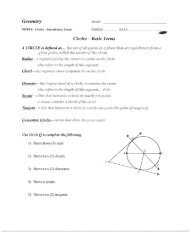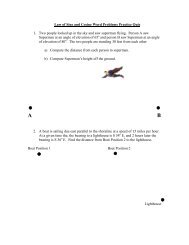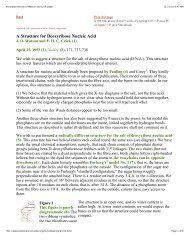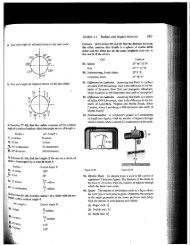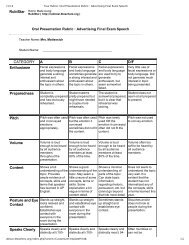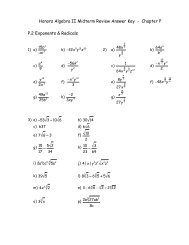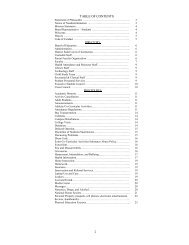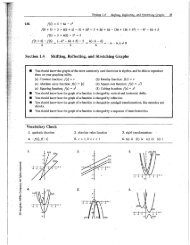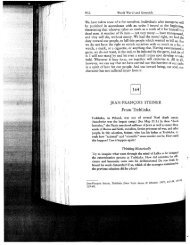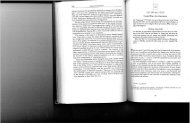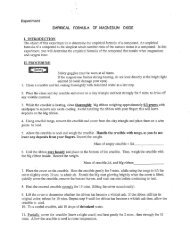N.N. Sukhanov TROTSKY AROUSES THE PEOPLE
N.N. Sukhanov TROTSKY AROUSES THE PEOPLE
N.N. Sukhanov TROTSKY AROUSES THE PEOPLE
Create successful ePaper yourself
Turn your PDF publications into a flip-book with our unique Google optimized e-Paper software.
Chapter l l World War l 325’e to be ttansbesent homethey stormedndred suits ofthe Assistant[’rout commitkenplace in~rist agitationration of thehevik wave is:al disinregrastrongpower,uipment. Theis peace at anyvery order, noh hostility....~he 2d Army~ce in the maeengaging ine surroundingfisions . . . ofarmy. Not a: this restlesshcould be rerceorder. Theed because oftsions may benmissars: Theas acceleratedand increased~ssary to leavelpply the sol-.*r clothing; to~mbers; to imweregiments.led with such~lete demoralwiththescribing simi-N.N. <strong>Sukhanov</strong><strong>TROTSKY</strong> <strong>AROUSES</strong> <strong>THE</strong> <strong>PEOPLE</strong>Playing a crucial role in the Bolshevik seizure nf power on November 7, 1917,was Leon Trotsky (1879-1940). Born Lev Davidgvich Bronstein, the son of aprosperous Je~vish farmer in Ukraine, Trotsky was attracted early to the ranksof the revolutionaries, and he shared their fate. Exiled to Siberia in 1902, he escapedto Switzerland with a faked passport in the name of Leon Trotsky. Backin Russia for the Revolution of 1905, he was again exiled and again’escaped.After a period abroad, he returned to Russia after the overthrow of the tsar inMarch I917 and soon assumed a leading role among the Bolsheviks. In September1917, as the moderate regime of Kerensky began to totter, Trotsky waselected chairman of the Petrograd soviet; soon afterward he masterminded theMilitary-Revolutionary Committee, the Bolshevik strike force.On the evening of November 4, Trotsky delivered a rousing speech at thePeoples’ House, a popular theater much used for working-class meetings. Hisspeech is d~scribed by an eyewitness, the Menshevik (a Social Democratic moderate)leader N. N. <strong>Sukhanov</strong>, in his 1917 book, The Russian Revolution.The mood of the people, more than 3,000,who filled the hall was definitely tense; theywere all silendy waiting for something. Theaudience was of course primarily workers andsoldiers, but more than a few typically lowermiddle-classmen’s and women’s figures werevisible.Trotsky’s ovation seemed to be cut shortprematurely, out of curiosity and impatience:what was he going to say? Trotsky at oncebegan to heat up the atmosphere, with his skilland brilliance. I remember that at length andwith extraordinary power he drew a picture ofthe suffering of the trenches. Thoughts flashedthrough my mind of the inevitable incongruityof the parts in this oratorical whole. But Trotskyknew what he was doing. The whole pointlay in the mood. The political conclusions hadlong been familiar. They could be condensed,as long as there were enough highlights.Trotsky did this--with enough highlights.The Soviet regime was not only called uponto put an end to the suffering of the trenches.It would give land and heal the internal disorder.Once again the recipes against hungerwere repeated: a soldier, a sailor, and a workinggirl, who would reqtfisition bread fromthose who had it and distribute it gratis tothe cities and fi’ont. But Trotsky went evenfurther on this decisive "Day of the PetersburgSoviet.""The Soviet Government will give everythingthe country contains to the poor and themen in the trenches. You, bourgeois, have gottwo fur caps!--give one of them to the soldier,who’s freezing in the trenches. Have you gotwarm boots? Stay at home. The worker needsyour boots .... "These were very good and just ideas. Theycould not but excite the enthusiasm of a crowdwho had been reared on the Tsarist whip. Inany case, I certify as a direct witness that thiswas what was said on this last day.All round me was a mood bordering on ecstasy.It seemed as though the crowd, spontaneouslyand of its own accord, would break
all your strength and at anythe Soviet that has taken onof bringing to a con-’ of the revolution and of g ivwasholding up its hands.vowed. Once again, accept thisan unusual feeling of oppresonat this really magnificentSomeone else went out onthere was no point in waitingall forces mustmust immediatelythe RevolutionaryCentral Committeeof the Bolsheviks [governing organizationof the Bolshevik partyJ with the insistentdemand that under no circumstances ~ahouldpower be left in the hands of Kerensky and Co.¯ ¯. not under any circumstances; the mattermust be decided without fail this very evening,or this very night.History wil! not forgive revolutionaries forprocrastinating when they could be victorioustoday (and they certainly will be victorious today),while they risk losing much tomorrow, infact, they risk !osing everything.If we seize power today, we seize it not inopposition to the Soviets but on their behalf.REV1E W Q UESTIONSChapter 11 WorldWarl 327The seizure of power is the business of theuprising; its political purpose will becomeclear after the seizure ....¯ . . It would be an infinite crime on the partof the revolutionaries were they to let thechance slip, knowing that the salvation of therevolution, the offer of peace, the salvationof Petrograd, salvation from famine, the transferof the land to the peasants depend uponthem.The government is tottering. It must begiven the death-blow at all costs.To delay action is fatal.1. What caused the breakdown of military discipline in the Russian ranks in !917?2. With what issues and what promises did Leon Trotsky arouse the masses insupport of the Bolshevik seizure of power?3. What promises did V. I. Lenin hold out ro his supporters should the revolutionsucceed?4. How would you define, from the evidence here offered, a revolutionary situation?’Petersburg more or less theon. Everywhere there; and final vows. Thousands,and hundreds of thousands ofwas already an insurusein Russia),lose everything!present. Let the, Committee [Bolshevikwithin the army anditution" whichii relinquish power onlyof the interests of(thethe interests of theimmediately andinterests of the8 The War and European ConsciousnessWorld War I caused many intellectuals to have grave doubts about the Enlightenmenttradition and the future of Western civilization. More than ever the beliefin human goodness, reason, and the progress of humanity seemed anillusion. Despite its many accomplishments, intellectuals contended that Westerncivilization was flawed and perishable.Paul ValdryDISILLUSIONMENTShortly after World War I, Paul VaMry (1871-1945), a prominent Frenchwriter, expressed the mood of disillusionment that gripped many intellectuals.The first reading was written in 1919; the second reading is from a1922 speech. Both were published in Variety, a collection of some of Valdry’sworks.



